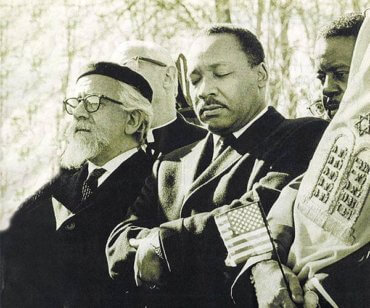
Are Jews Required To Fight In Israel’s Wars?
Dear Jew in the City,
Is there an obligation from a Jewish law perspective to defend the land of Israel in battle? If so, why is there a large group that refuses to fight?
Sincerely,
Edith
Dear Edith,
Thanks for your question, which is more timely than you may realize. (In fact, it’s so timely that the answer is subject to change very soon!)
The first thing to understand is that Israel, while the only Jewish-majority nation in the world, is not a theocracy. While many wish it were, many more are glad that it’s not. This is easily illustrated by comments made in 2019 by Knesset member Bezalel Smotrich, who declared to a conference of rabbis that he would “like the state to act according to the Torah and halacha.”
This received a lot of pushback from Israel’s secular politicians, including MK Avigdor Lieberman, who said that “Jewish law is an important and critical part of the Israeli justice system, but Israeli law cannot be Torah law.”
And that’s an important distinction. Torah law informs Israeli law, but Israeli law is not identical with Torah law.
There are, of course, plenty of individuals who observe Torah law, and plenty whom we would expect to. Therefore, the question is whether Torah requires army service and, if so, whether those who fail to do so are in violation of the law.
At first glance, it would seem that the Torah does indeed require army service. The Torah includes extensive censuses of those in the wilderness following the Exodus who were eligible for military service, starting at the age of 20. (See Numbers chapter 1 et al.) And, of course, Deuteronomy chapter 20 lists those who are exempt from military service: basically, those who have recently built a house, planted a vineyard or betrothed a woman, plus cowards who will dishearten their fellow soldiers with their timidity.
But this is just for optional wars, such as wars of expansion. For obligatory wars, even a groom is taken from his wedding to fight (Sotah 44b). According to the Rambam, a defensive war is in the category of an obligatory war (Melachim 5:1).
But does this apply to the modern-day State of Israel? Remember, Israel is a Jewish state, but a democracy, not a monarchy or a theocracy. Israel doesn’t currently have a king, a Kohein Gadol or a Sanhedrin. So, who says the Biblical laws apply in such a situation?
In truth, there wasn’t much in the way of precedent for 2,000 years or so. Sure, we had armies in Biblical times, but we didn’t for millennia of exile and foreign rule. When the modern State of Israel was founded, the rabbinic authorities had to consider whether a draft was even permissible, let alone obligatory.
Why might a draft be impermissible you ask? Because of the law requiring us to save others who may be endangered (Leviticus 19:16). There is certainly an obligation to attempt to rescue those who may be in peril, but we are not required to do so if one is likely to be killed in the attempt (Sanhedrin 74a). Based on this halacha, if the conditions for conscription aren’t met according to the Torah’s parameters, then a draft might actually be prohibited!
The rabbinic “founding fathers” looked at a number of sources to determine the answer to this question. They considered the aforementioned statement of the Rambam (Maimonides), that participating in defensive wars is obligatory (something that shouldn’t be affected by whether the government is a monarchy or a democracy). They looked at the ruling of the Ramban (Nachmanides), that there is an ongoing Torah obligation to conquer the land of Israel (as opposed to a one-time obligation in the time of Joshua). This, of course, would justify a draft not just for defensive wars. They even considered the precedent of Queen Esther, who was convinced by Mordechai to risk her own life in order to save the Jews. How could he pressure her to do such a thing if one isn’t obligated to risk their own life to save others? Because the rules are different when the fate of the nation is on the line.
It should be obvious that the rabbis landed on the position that a draft is permitted, which brings us to the question of why some don’t fight. You’ll note that the list of people exempted from military service in Deuteronomy chapter 20 doesn’t include yeshiva students. And even those who are exempted in that chapter still have to participate in obligatory wars, which we have noted includes defensive wars. So why are yeshiva students exempt today?
The military exemption for yeshiva students dates all the way back to 1948, and for very good reason: the yeshivas of Europe had been wiped out in the Holocaust and the future of Torah was in jeopardy. Rav Yitzchak HaLevi Herzog, the first Chief Rabbi of Israel, wrote to David Ben Gurion, the first prime minister, how tens of thousands of yeshiva students had been eradicated, and that yeshiva students in Israel should be exempted from military service because Torah is also a necessary component of the State of Israel. He later wrote in a responsum that this should include even obligatory wars because of the danger of Torah being forgotten. The argument had merit, and such exemptions were instituted.
The issue today is that things have changed. Torah, thank God, is ubiquitous and in no imminent danger of being forgotten. Also, it’s questionable whether it makes sense to exempt every 18-year-old – many of whom are, shall we say, not exactly budding Torah scholars – just because they happen to be enrolled in yeshivas. So, there are those who feel the law should be changed.
In fact, the law is changing! The Israeli court ruled in 2017 that the law was unfair to the secular majority, and the extensions of that policy expired just last month (March 2024). The IDF has already started drafting yeshiva students and subsidies previously paid to yeshivas are being frozen.
But the debate is still ongoing and some middle ground may be reached. As the Talmud Yerushalmi says (Chagigah 1:7), our teachers of Torah are an integral component of our national defense. So perhaps the historic exemption was too broad, but maybe some concessions do need to be made for students who actually are the next wave of Torah scholars.
The deadline for this round of debate on the subject is in August, so keep an eye on the news for updates on the answer to your question!
Sincerely,
Rabbi Jack Abramowitz
Educational Correspondent
Follow Ask Rabbi Jack on YouTube
If you found this content meaningful and want to help further our mission through our Keter, Makom, and Tikun branches, please consider becoming a Change Maker today.








1 comment
Sort by
Great article! There is also the issue that parents of yeshiva students are concerned that their sheltered yeshiva sons would suffer spiritually. This is a valid concern that has merit too.